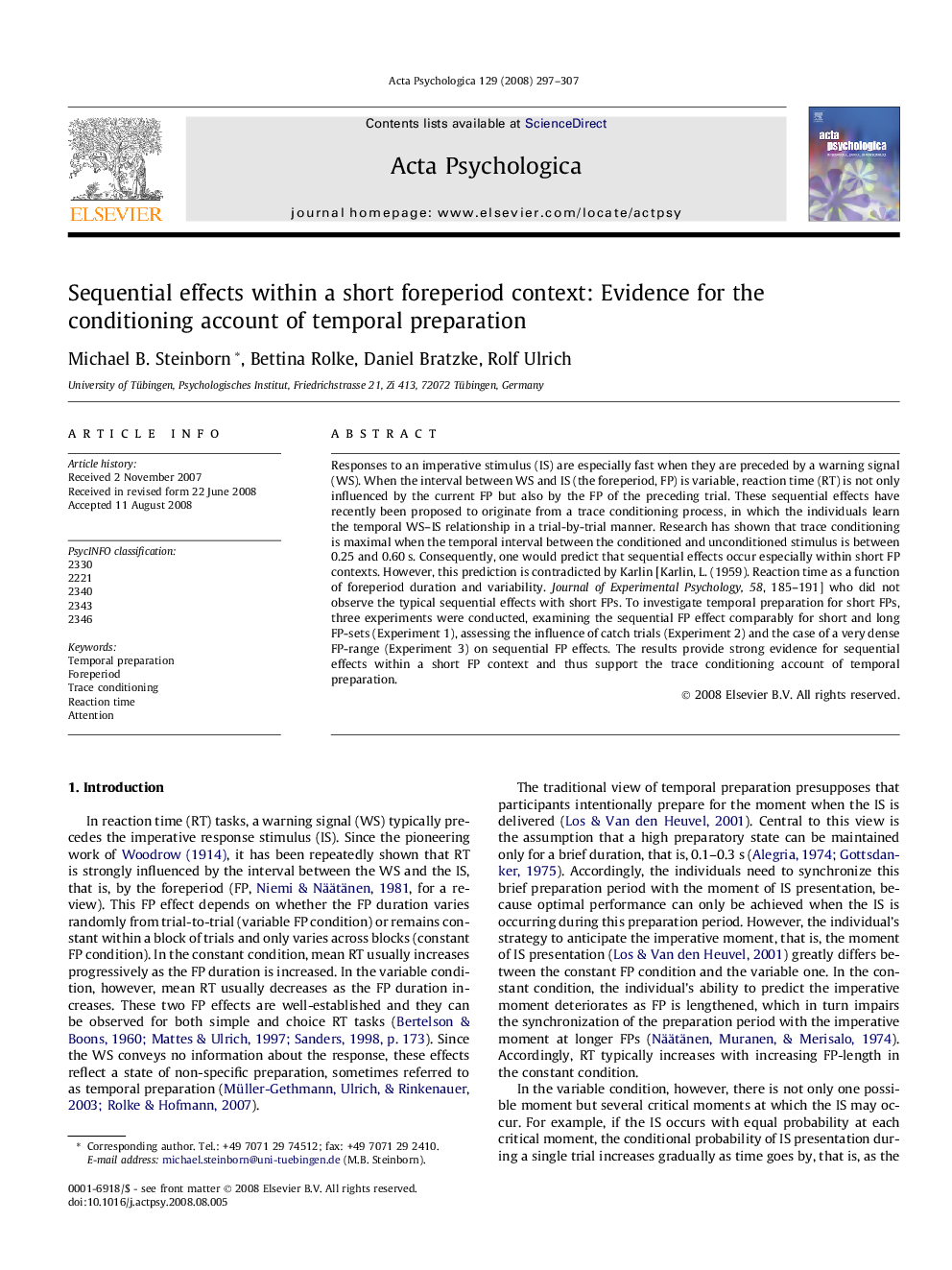| Article ID | Journal | Published Year | Pages | File Type |
|---|---|---|---|---|
| 920489 | Acta Psychologica | 2008 | 11 Pages |
Responses to an imperative stimulus (IS) are especially fast when they are preceded by a warning signal (WS). When the interval between WS and IS (the foreperiod, FP) is variable, reaction time (RT) is not only influenced by the current FP but also by the FP of the preceding trial. These sequential effects have recently been proposed to originate from a trace conditioning process, in which the individuals learn the temporal WS–IS relationship in a trial-by-trial manner. Research has shown that trace conditioning is maximal when the temporal interval between the conditioned and unconditioned stimulus is between 0.25 and 0.60 s. Consequently, one would predict that sequential effects occur especially within short FP contexts. However, this prediction is contradicted by Karlin [Karlin, L. (1959). Reaction time as a function of foreperiod duration and variability. Journal of Experimental Psychology, 58, 185–191] who did not observe the typical sequential effects with short FPs. To investigate temporal preparation for short FPs, three experiments were conducted, examining the sequential FP effect comparably for short and long FP-sets (Experiment 1), assessing the influence of catch trials (Experiment 2) and the case of a very dense FP-range (Experiment 3) on sequential FP effects. The results provide strong evidence for sequential effects within a short FP context and thus support the trace conditioning account of temporal preparation.
